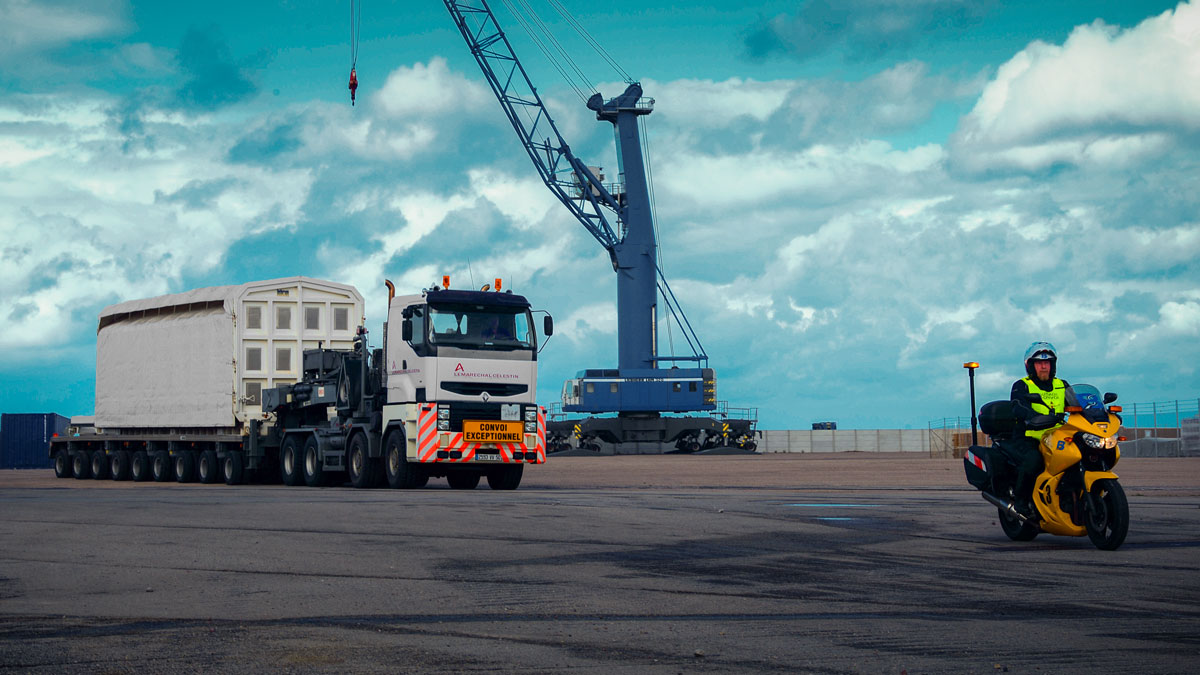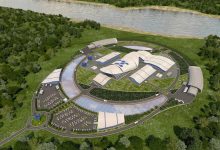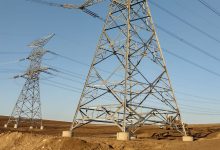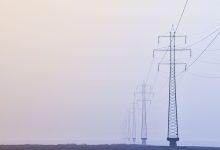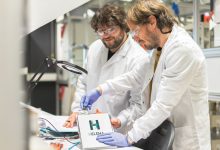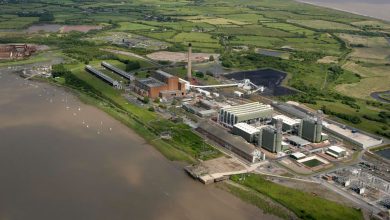Romania and Hungary Committed to Safe and Sustainable Management of Radioactive Waste
An International Atomic Energy Agency (IAEA) team of experts said that Romania is committed to the safe and sustainable management of radioactive waste while noting opportunities for improving implementation including preparations for further disposal facilities for radioactive waste from nuclear fuel cycle activities.
The Integrated Review Service for Radioactive Waste and Spent Fuel Management, Decommissioning and Remediation (ARTEMIS) mission which took place from 13 to 22 March was requested by the Government of Romania to evaluate its national programme for the safe and sustainable management of radioactive waste and spent fuel.
Radioactive waste in Romania comprises material from fuel cycle activities and other institutional radioactive waste from research, industry and hospitals. Institutional radioactive waste in Romania is currently disposed of at the National Repository Radioactive Waste (DNDR) disposal facility. The Government plans to build two further disposal facilities for radioactive waste from nuclear fuel cycle activities. The first facility for short-lived low and intermediate level radioactive waste is to be constructed near the Cernavoda nuclear power plant site. It is planned to commence operations in 2028. The second facility, a deep geological disposal facility for high level waste, is planned to be commissioned around 2055. The location has not yet been determined.
ARTEMIS missions provide independent expert advice from an international team of specialists convened by the IAEA. The reviews assess the country’s national programme against IAEA Safety Standards and technical guidance as well as international good practices. The mission was requested by Romania to fulfil its European Union (EU) obligations that require an independent review of EU Member States’ national programmes for the management of radioactive waste and spent fuel.
Hosted by the Nuclear and Radioactive Waste Agency (ANDR), within the Ministry of Energy, the ten-day ARTEMIS mission involved detailed discussions with Romanian counterparts to review specific topics such as the national strategy for radioactive waste, the radioactive waste inventory, and the financing of radioactive waste management.
Romania generates radioactive waste from its one nuclear power plant, at Cernavoda. It consists of two 650-Megawatt electric (MWe) pressurized heavy-water reactors and accounts for about 20% of the country’s electricity. Unit 1 went into commercial operation in 1996 and Unit 2 in 2007. In addition, Romania operates one research reactor, one nuclear fuel manufacturing plant and uses radioactive sources in medical and industrial applications. One research reactor is in decommissioning.
“Romania has developed a comprehensive approach to the management of radioactive waste and is committed to further develop and implement safe and sustainable radioactive waste management, whilst continually seeking to minimize waste generation,” said ARTEMIS team leader Richard Cummings, Technical Director of Nuclear Waste Services, United Kingdom. “The Government is well aware of the necessary steps to ensure the safe management of its radioactive waste and is aiming to acquire the appropriate expertise.”
The ARTEMIS review team comprised six experts from Belgium, France, Germany, Poland, Spain and the United Kingdom, supported by three IAEA staff members. The team’s recommendations and suggestions for the safe and sustainable management of radioactive waste in Romania included:
- ANDR should improve the waste management strategy to take account of the links between the different steps of radioactive waste management, as well as the impact of the anticipated disposal options.
- ANDR should finalize the plans for involving interested parties, in particular with communities that may host the deep geological disposal site, to ensure that they are properly engaged in the site selection process.
- The Government should allocate appropriate funding, including for the nuclear safety regulator, to further build and strengthen the capacity to implement the national strategy for radioactive waste management.
“Romania has sought to follow safety standards and apply international good practices and to harness information-sharing opportunities when it came to establishing procedures for our national waste management,” said Mihaita Gaina, President of the Nuclear and Radioactive Waste Agency from the Nuclear and Radioactive Waste Agency. “The report from this ARTEMIS mission will provide us with welcome recommendations and suggestions to ensure we reach further and maintain a high level of safety.”
Anna Clark, IAEA Head of the Waste and Environmental Safety Section, said that Romania is in a good position to continue meeting high standards of safe and responsible management of radioactive waste and spent fuel. “Romania was open and transparent in the discussions and showed willingness to make full use of this ARTEMIS peer review mission. We are convinced that the findings will help Romania to deliver against its commitment to continuously improve the safe and effective management of radioactive waste,” she added.
The final mission report will be provided to the Government in about two months. The Government has decided to make the report public.
Hungary Sees Opportunities for Further Enhancement
The Integrated Review Service for Radioactive Waste and Spent Fuel Management, Decommissioning and Remediation (ARTEMIS) team concluded a ten-day mission to Hungary on 29 March. The mission was carried out at the request of the Government of Hungary and hosted by the Hungarian Atomic Energy Authority (HAEA), which is responsible for nuclear and radiation safety regulation in the country.
The team, which comprised five experts from Denmark, Finland, France, Lithuania and Sweden, as well as three IAEA staff members, held meetings with officials from the Ministry for Innovations and Technology, the Hungarian waste management organisation called the Public Limited Company for Radioactive Waste Management (PURAM), the Paks Nuclear Power Plant (NPP), and the HAEA at its headquarters in the capital, Budapest. Observers from Slovenia, which will host an ARTEMIS later this year, and from the European Commission also participated in the mission.
The mission to Hungary aimed to support the country in meeting European Union (EU) obligations that require an independent review of national frameworks and programmes for the management of spent fuel and radioactive waste.
Hungary generates half of its electricity from four nuclear power reactors at the Paks NPP, located 130 km south of Budapest. The country is planning to build another two reactors at the same site. Hungary also operates two research reactors, isotope production, and uses radioactive sources in industrial, medical and research applications.
In Hungary, radioactive waste and spent fuel are managed by PURAM. Spent fuel from the Paks NPP is stored in reactor pools and in the dry storage facility at the Paks site. Two disposal facilities are in operation, one for low and intermediate level waste from the NPP and one for other institutional waste. A disposal facility is envisaged for very low-level waste in preparation for the future shut down and decommissioning of the four reactors at Paks NPP. Hungary is moving ahead in the development of a deep geological disposal facility for high level waste.
The ARTEMIS team highlighted that Hungary has developed and implemented a comprehensive, robust, and well-functioning system to maintain and further enhance the safety and effectiveness of spent fuel and radioactive management.
“The Hungarian system provides a well-developed infrastructure for ensuring the safe and effective management of spent fuel and radioactive waste now and in the future,” said ARTEMIS team leader David Ulfbeck, Senior Adviser at the Danish Health Authority. “The ARTEMIS review team noted potential for enhancing the decision-making process for the backend of the fuel cycle and elaborating the regulatory framework for disposal of very low-level radioactive waste.”
As a good practice, the ARTEMIS team identified performance in improving the safety of disposal facilities for low and intermediate activity level waste. The team recognized the safety improvement programme which PURAM has designed and implemented at an existing disposal facility at Püspökszilágy based on a comprehensive comparison of different options in terms of long-term safety assessment and evaluation of radiological risks for workers and the public.
Anna Clark, Head of the Waste and Environmental Safety Section in the IAEA Division of Radiation, Transport and Waste Safety, said that “Hungary’s approach to this peer review mission has been excellent. The preparation and presentation of information have enabled open and fruitful discussions. We are convinced that the findings from the ARTEMIS Mission will help Hungary to further enhance the safe and effective management of spent fuel and radioactive waste.”
In addition, recommendations and suggestions provided by the team included:
- The national policy sets out a sequence of decisions regarding the management of spent fuel but it does not specify when or how the decisions are made. The Government should specify when and on what basis such decisions shall be made.
- The HAEA should consider completing development of safety regulations for management of very low-level waste including disposal.
“We are very glad to receive independent international feedback that acknowledges Hungary’s commitment and efforts in the area of spent fuel and radioactive waste management, and we are proud of the good practice found by the experts of the Mission,” said Andrea Beatrix Kádár, President of HAEA. “We are committed to continuous improvement. Based on the recommendation and suggestions, we will prepare and implement an action plan that facilitates achieving main goals in this field.”
The final mission report will be provided to the Government in two months.
About ARTEMIS
ARTEMIS is an IAEA peer review service for radioactive waste and spent fuel management, decommissioning, and remediation programmes. This service, available to all IAEA Member States, is intended for facility operators and organizations as well as for regulators, national policy makers and other decision makers.


